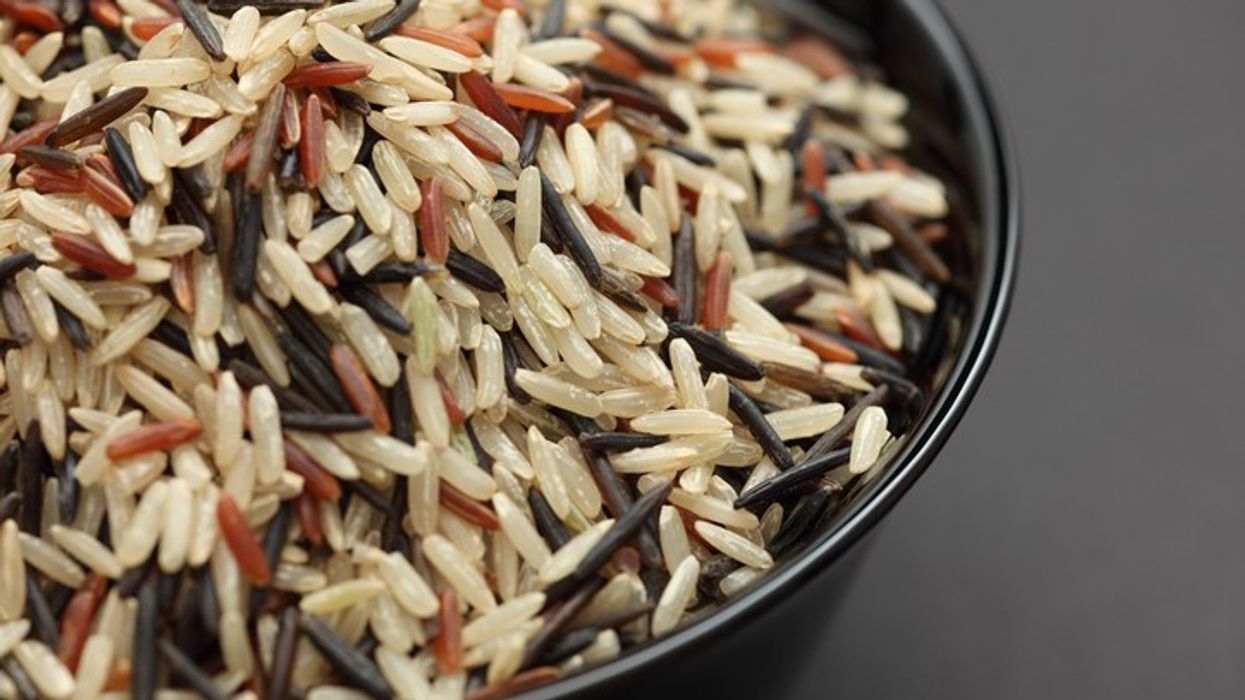Approximately half the global population, including nearly all of East, and Southeast Asia, relies solely on rice as a primary food source.
In some homes, rice is consumed in more than one meal daily. This low-cost, high-calorie grain is a staple in many diets, making it accessible and vital to all.
However, discussions persist about the potential health impacts of rice consumption, causing many to seek alternatives to white rice, such as brown, red, and black rice.
To determine the best type of rice for you, experts, and dietician Garima Goyal shares insight on the various varieties and their specific benefits, The Indian Express reports.
White rice
White rice is the most widely consumed variety globally. “Compared to other varieties, white rice is the highest in carbohydrate content so those trying to limit their calories should consume it with caution. The appearance of this rice is polished due to the removal of its outer bran and husk layers — leaving it with less fibre,” Goyal explains.
Additionally, Harvard researchers in the Archives of Internal Medicine report that white rice can pose a risk to diabetes, as it can cause significant spikes in blood sugar.
According to the researchers, brown rice and other whole grain foods are a healthier choice as they release glucose at a slower pace.
Also, an earlier report in the BBC explains that brown rice, like other whole grain foods, is rich in fibre and releases energy gradually.
In contrast, white rice undergoes milling, which removes the bran and some of the germ, resulting in a higher glycemic index (GI), thus causing a quicker rise in blood sugar levels.
High GI is understood as a measurement for foods with carbohydrates based on their impact on an individual's blood sugar levels.
"From a public health point of view, replacing refined grains such as white rice by whole grains, including brown rice, should be recommended to facilitate the prevention of type 2 diabetes," the researchers said.
Brown rice
Brown rice has a low glycemic index (GI), which means it won't cause a sharp increase in blood sugar levels after consumption, the site WebMD informs.
In fact, research shows that consuming three servings of whole grains like brown rice per day can decrease the risk of type 2 diabetes by as much as 32%.
Additionally, a person's diabetes risk may decrease by 16% by switching 50 grams of white rice with brown rice per day, scientists affirm.
Brown rice is also beneficial for heart health due to the wealth of nutrients it contains. It is a good source of dietary fibre, which reduces the risk of death from heart disease, and contains high levels of magnesium, reducing the likelihood of heart disease and stroke.
“Brown rice is a good alternative to white rice because of its richness in vitamins and minerals such as magnesium, selenium, thiamine, niacin, vitamin B6, phosphorus and potassium,” Goyal said.
She adds, “Brown rice has been shown to reduce HbA1c in diabetics as well.”
Red rice
“This rice contains a lot of magnesium which lowers blood pressure, maintains blood glucose levels and strengthens bones. It is also rich in iron and zinc. Thus, this makes for a healthier alternative as compared to brown rice,” Goyal said.
Red rice's main nutrient is anthocyanin, a beneficial compound that gives the rice its deep red hue, and which can lower blood pressure, prevent diabetes, enhance vision, and decrease cancer cells.
Experts inform that that red rice also possesses anti-inflammatory and anti-bacterial properties. Additionally, red rice is abundant in fibre, vitamins B1 and B2, calcium, and iron.
Black rice
Black rice, known for its nutty, slightly sweet taste, chewy texture and unique purple-black colour, is not only delicious but also highly nutritious, making it a rising "superfood" among rice varieties.
“Black rice has been slow to cross over to places outside of Asia, but we are finally starting to understand its benefits as a healthy, appetizing and beautiful food,” registered dietitian Beth Czerwony, RD told Cleveland Clinic.
Compared to other rice, black rice is abundant in nutrients, especially anthocyanins - potent antioxidant pigments that safeguard cells from damage, and responsible for its distinctive colour like eggplants, blueberries, açai berries, and Concord grapes.
Studies on black rice, also known as forbidden rice, indicate numerous potential benefits such as aiding weight control, enhancing eye health, defending against cancer, diabetes, and heart disease, and reducing inflammation.
Though further research is needed, early results on its nutritional value are reportedly encouraging.
“We know forbidden rice is high in nutrients and antioxidants, which help protect our bodies against disease,” said Czerwony.
She adds, “It’s also low in sugar, fat and salt, which is important when we’re looking to improve our diets and maintain health.”
Speaking about the benefits of consuming black rice, Goyal said, “Since black rice has the highest antioxidant, protein and dietary fibre content as compared to all other varieties, it is the healthiest choice. It also has cardioprotective effects.”
The dietician suggests that choosing any unrefined rice is a good choice, but black rice stands out as the best option due to its high nutrient density, ample fibre, and abundant antioxidants.




